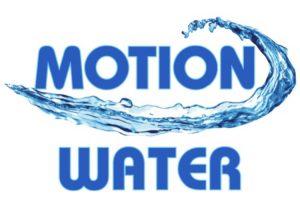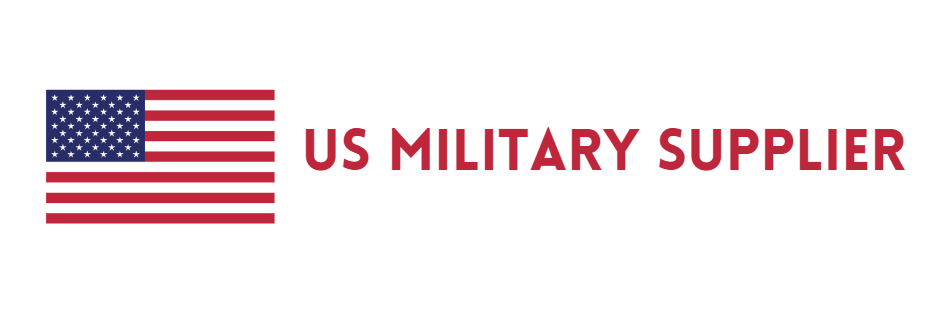IN THE NEWS

NEWARK BEGINS GIVING RESIDENTS BOTTLED WATER AMID ONGOING LEAD PROBLEMS
Newark Mayor Ras Baraka, left, listens to a reporter’s question during a 2018 news conference with Kareem Adeem, the city’s deputy director of water and sewer utilities, about lead levels in the city’s tap water. (Julio Cortez/AP)
New Jersey’s largest city began handing out cases of bottled water Monday to residents with lead water service lines, more than two years after it began wrestling with high levels of lead in its tap water.
“I understand people’s frustration,” Newark Mayor Ras Baraka (D) said in an interview, adding that he also has a lead line at his home, and that he and his pregnant wife have been using one of the tens of thousands of water filters the city began distributing in the fall.
“This is a very serious matter to me. We don’t take this lightly at all,” he said, adding, “Am I worried? Yeah, I am worried. And we are going to do what we can to get to the bottom of this.”
Baraka’s comments came after the latest twist in Newark’s long-running water problems. Tests in recent days showed that the water filters the city provided to residents might not be adequately blocking lead, according to federal and local officials.
The findings prompted Peter Lopez, the Environmental Protection Agency’s regional administrator who oversees New Jersey, to write to Baraka and New Jersey’s top environmental official on Friday, saying it was “essential” that officials warn residents of the findings and begin providing bottled water “as soon as possible” to people whose homes have lead service lines.
On Saturday, Baraka held a news conference to inform residents about the failed filters. He urged pregnant women and children under 6, in particular, to avoid drinking or cooking with water from their taps “until we figure out what the hell is going on.”
“The results of these tests leave us with many questions, and we must expand our testing to understand what is happening,” Baraka said, adding that officials are also working with the Pur filter manufacturer to determine why two of three filters that were tested failed. Since October, the city has distributed roughly 40,000 filters. Baraka also said that the city will continue to provide water testing for residents and free blood tests for children under 6.
[Flint’s water crisis reveals government failures at every level]
On Sunday, Baraka and New Jersey Gov. Phil Murphy (D) announced four locations where residents could begin picking up bottled water — paid for by the state, for now — while officials aggressively expand testing of filters. Residents qualify for the free bottled water if they have lead service lines, use city-provided filters, and live in the part of the city considered most at risk for water problems.
The mayor said Monday that the city will deliver water if residents are elderly or disabled. Most people will pick up water at designated locations. “We are giving out cases, which will hopefully last them a week,” said Baraka, who also urged residents to keep using city water for showering, washing dishes and other purposes in order to help circulate “corrosion control” treatments throughout the system.
That process of re-coating pipes should bring down lead levels eventually, Baraka said. ”The issue is, it’s going to take time.”
On Sunday evening, many Newark residents received robocalls from the city that filters were “not working as expected” and urging pregnant women and young children to use only bottled water in preparing food and for drinking until further notice. It was not the first time Newark residents have received such news about lead contamination problems in recent years.
At least 30 Newark schools had their drinking fountains shut off in March 2016 after tests revealed high lead levels, and students and staff were provided bottled water. In 2017, Newark exceeded the federal “action level” of 15 parts per billion of lead during testing of residential homes — a threshold it has continued to exceed.
[Facing pressure, more schools scramble to confront dangers of lead in water]
Newark officials insisted the water was safe and that the key problem lay in thousands of aging lead service lines that carried water from city mains to individual homes. “The city’s water is not contaminated with lead,” the head of Newark’s water department said in a statement last summer, accusing activists of making a “false comparison” with the water crisis in Flint, Mich.
Baraka also has rejected comparisons to Flint, saying Newark officials have taken the required steps to try to fix its water quality violations, have kept the public notified and have worked to help homeowners replace their lead service lines.
“What happened in Flint was egregious,” Baraka told reporters last year. “Flint purposefully did not put the corrosion control [chemicals] in their water. Ours stopped working. That’s a marked and clear difference.”
Still, in a notable shift in the fall, the city began handing out thousands of filters to tens of thousands of residents and announced it would alter its treatment of the water after research showed that the corrosion controls in part of its system were not working properly.
In an open letter to President Trump last year requesting help, Baraka wrote that “although the situation in Newark is very different from that of Flint, our need to replace lead service lines is equally urgent.” He estimated that it would take $70 million to replace lead lines in the city — a massive expense for a city that has long struggled with poverty.
[One city’s solution to drinking water contamination? Get rid of every lead pipe.]
Public health experts agree that lead exposure is dangerous even at low levels. Lead can cause lasting damage to the developing brains and nervous systems of young children. The result can be long-term behavioral, cognitive and physical problems.
The law requires that if a certain number of homes tested in a city exceed the federal “action level” of 15 parts per billion, a utility must take remedial steps to improve its corrosion controls — and begin replacing lead pipes.
Last month marked the fifth consecutive time in two years that Newark’s mandated water testing exceeded federal limits for lead. An ongoing lawsuit against the city, brought by a group of schoolteachers and the environmental advocacy group Natural Resources Defense Council, has been pushing for a citywide distribution of bottled water since August 2018.
“We’re glad that EPA is finally weighing in after at least two years of this lead health problem being clear,” said Erik Olson, health and environment program director at the NRDC. “While the EPA proposal to require bottled water for some residents in Newark is a good first step, we don’t know whether this would be just a temporary measure, and many thousands of other residents of the city still will not be protected by this partial action.”
On Monday, the commissioner of New Jersey’s Department of Environmental Protection, Catherine McCabe, wrote to the EPA asking for more help. She said state and local officials relied on the EPA’s assurances that the filters Newark handed out to residents were reliable. She also warned that the city and state “have limited emergency water supplies and financial resources, and we do not yet know how long we will be able to provide bottled water.”
“Given the concerns EPA has here, we hope that EPA will offer assistance promptly,” wrote McCabe, an EPA veteran.
News that the water filters handed out by the city might not be working caused bewilderment and frustration among some residents.
“I was beginning to trust the [city-provided] filters for cooking. And now I’m being told the filter may not be working? I feel so lost and confused,” said Shakima Thomas, who lives in Newark’s West Ward with her 5-year-old son. She said she had her water tested in February and that it measured 76.2 parts per billion, well in excess of federal “action” levels.
Thomas began cooking with bottled water but eventually stopped. “I slowed down on the bottled water because it got too expensive,” she said.
Mona Hanna-Attisha, the Michigan pediatrician who helped bring to light the severity of Flint’s water crisis in 2015 and who recently visited with residents in Newark, said the city needs to act quickly and aggressively to protect its residents — and work to hold on to whatever trust remains in its public officials.
“For far too long, Newark has tiptoed around a comprehensive response to their lead-in-water crisis,” she said. “Newark is what keeps me up at night now.”


